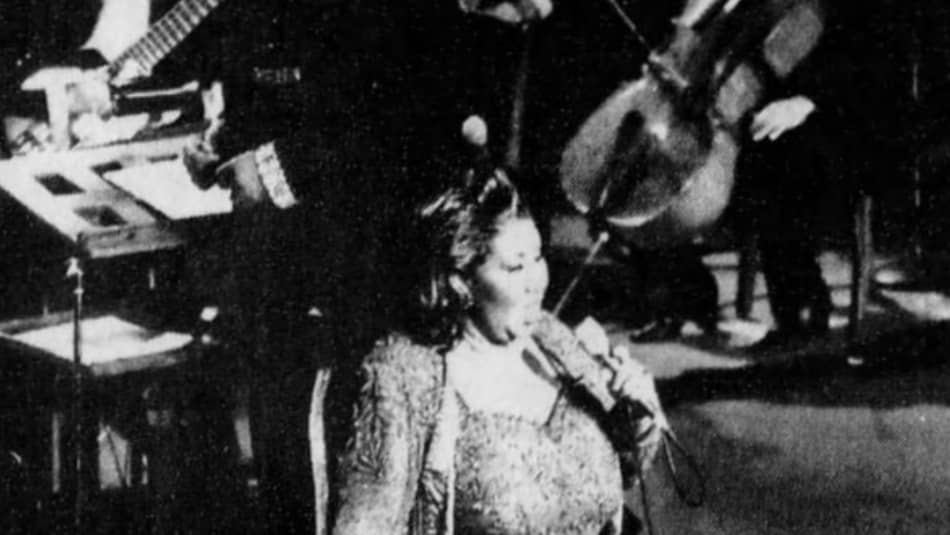
Aretha Franklin
Queen of Soul
The Music of Motown
We can't talk about Aretha Franklin without talking about the music that came out of Detroit. Motown was not just about music, it sparked an entire culture in the United States that is still alive today. More than just a record label, Motown became a symbol for racial equality and tolerance in America. Though Aretha Franklin never signed with her hometown label Motown Records, she was childhood friends with Motown recording artist and songwriter, Smokey Robinson, and other artists on the label.
Queen of Soul
When Aretha belted "R–E–S–P–E–C–T", the Detroit native with soul-gripping vocals instantly captured the world’s attention. Released in 1967, in the depths of the civil rights movement and women's rights movement, the song not only became a signature hit, but a nationwide anthem that set the tone for feminism and equality throughout the 1970s.
“It was the need of a nation,” she wrote in her autobiography Aretha: From These Roots. “The need of the average man and woman in the street, the businessman, the mother, the fireman, the teacher–everyone wanted respect.”
The Billboard chart-topping record still resonates today and serves as the foundation of the late singer’s 2021 biopic RESPECT, starring Jennifer Hudson. On January 4, 2023, in a world premiere presentation, the DSO honored the Queen of Soul’s legacy with RESPECT: Film in Concert. The experience brought the essence of Aretha Franklin back into Orchestra Hall–a stage she graced with her band and the DSO in the late 1990s.
Aretha and the DSO
Aretha performed several shows with the DSO in the late 1990s. "I will never forget the day that Aretha came to Orchestra Hall,” says Randy Hawes, DSO bass trombonist from 1985–2020. “The program looked good, with Aretha and her band set to play many of her classics and a few operatic selections, which the orchestra was curious about. Her band was larger than other guest artists: backup singers, a big rhythm section, her son on guitar, and a sizable collection of speakers to amplify everything.
“The rehearsal had more than its share of stops and starts and sound level checks. I heard later she was actually nervous about singing the Puccini arias, and she definitely held back quite a bit during rehearsal. Our trepidations about Aretha singing Puccini’s Nessun Dorma, were put to rest when she did her own version of it, putting her stamp of originality and soul into it, and the audience went nuts. She seemed to relax when that part of the concert was over and everyone loosened up.”
Haden McKay, longtime DSO cellist, remembers the experimental nature of Aretha: “She was working with a local opera coach, Mary Callaghan Lynch. It wasn’t that she wanted to become an opera singer, but she wanted to know opera and then give it her own twist. The orchestra was intrigued to play with her because she was a local legend, but she hadn’t played much with orchestras.”
Aretha's Legacy
Though the concerts with Aretha were nearly two decades ago, DSO bassist Stephen Molina, orchestra member since 1976, remembers the air was electric. And the crowd went absolutely bananas. “Aretha was gracious. She really relished the opportunity to sing in our great hall, and we relished the opportunity to play with someone so significant.”
Hawes went on to say: “The moment I recall the clearest was when we went into Freeway of Love. The overhead spotlights were twirling, lighting up the audience, who were on their feet dancing and clapping. It was a sold-out concert that was unique: a local legend back performing with the hometown orchestra in the acoustically wonderful Orchestra Hall. It was loud onstage but hearing Aretha Franklin in her prime and experiencing the DSO’s brush with this iconic singer was amazing!"
R.E.S.P.E.C.T.
Aretha franklin’s performance with the Detroit Symphony was a historic event. Her voice has been an inspiration to generations of artists, and her legacy will be remembered for many years to come!

May 26–28




